R&D tax relief rise is driven by SMEs
A large increase in the amount of R&D tax relief claimed by UK businesses in the financial year 2021 to 2022 was driven by small firms, according to the latest figures.
They show a total of £7.6bn was claimed – an 11 per cent rise on the previous 12 months.
The figures also show the total number of R&D tax credit claims for the tax year 2021 to 2022 was 90,315, up five per cent on the previous year.
The information and communication, manufacturing, and professional, scientific and technical sectors continued to have the greatest volume of claims, making up 62 per cent of the total.
However, despite the rise in figures there are concerns that government changes that came into effect in April this year may have a negative impact on the scheme
Martin McTague, national chair of the Federation of Small Businesses (FSB), said: “The figures show a huge increase in SME expenditure on R&D was driven by the R&D Tax Credit Scheme, prior to cuts made by the government that came into effect in April this year.
“The figures align with our latest research on innovation, with 46 per cent of small firms telling us that extra tax relief would encourage them to innovate.
“Our own research also shows 64 per cent of small firms which applied for R&D tax relief in the last three years have improved cashflow for their business, while over a half increased their investment in R&D.
“Two-fifths have used the tax credits to increase their investment in future projects, and more than a third of recipients say it has led them to undertaking projects that would not have happened otherwise.
“Government cuts to R&D tax relief, even for R&D intensive firms, are self-defeating, especially when countries such as France and the US are going in the opposite direction.
“There has yet to be an official assessment on the impact of R&D tax credits cuts on small firms. The government should monitor this space and publicly publish a review of the impact on the levels of R&D conducted.”
He added: “We’re concerned about HMRC’s recent clampdown on R&D tax relief recipients. Its heavy-handed approach has taken a toll on start-ups and small business owners, who have to spend hours or even days to dig up evidence for claims dated back not only months but also years.
“Clamping down on genuine abuses of the system is one thing, but HMRC causing needless stress and anxiety for firms who have claimed in good faith often on the advice of expert intermediaries is another.
“We urge HMRC to review its compliance activities and, while ensuring that it accepts genuine cases for relief, it should not be heavy-handed, aggressive or inconsistent.”
The FSB is also calling on the government to consider merging the two R&D tax relief schemes currently in operation, with a higher rate of tax relief given to smaller firms if that was to happen.
• To discuss if R&D tax credits could help your business and advice on how to apply please contact me on 01772 430000




